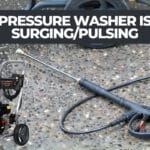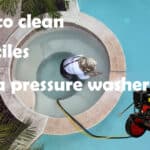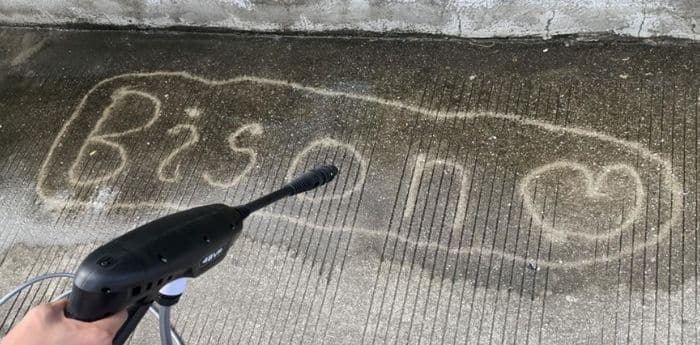

BISON Santy
Hallo, ich bin Santy, der Gründer von bisonclean.com. Ich habe in der Reinigung Maschinen Bereich für mehr als 5 Jahre jetzt, und der Zweck dieses Artikels ist es, mit Ihnen das Wissen im Zusammenhang mit Druckreiniger aus einer chinesischen Lieferanten Perspektive zu teilen.
Inhaltsübersicht
Like any machine, pressure washers can have some issues that affect their performance, and one of the most common and annoying problems is leaks. A leaking pressure washer not only wastes water and reduces cleaning efficiency but may also signal deeper issues within the machine. If you’ve noticed water leaking from your unit, it’s important to identify the cause and fix it promptly to avoid further damage.
The good news is that most leaks are relatively easy to troubleshoot and repair with some basic knowledge. So, in this article, BISON will explore the common causes of leaks in pressure washers and provide step-by-step solutions to help you restore your machine to peak condition.
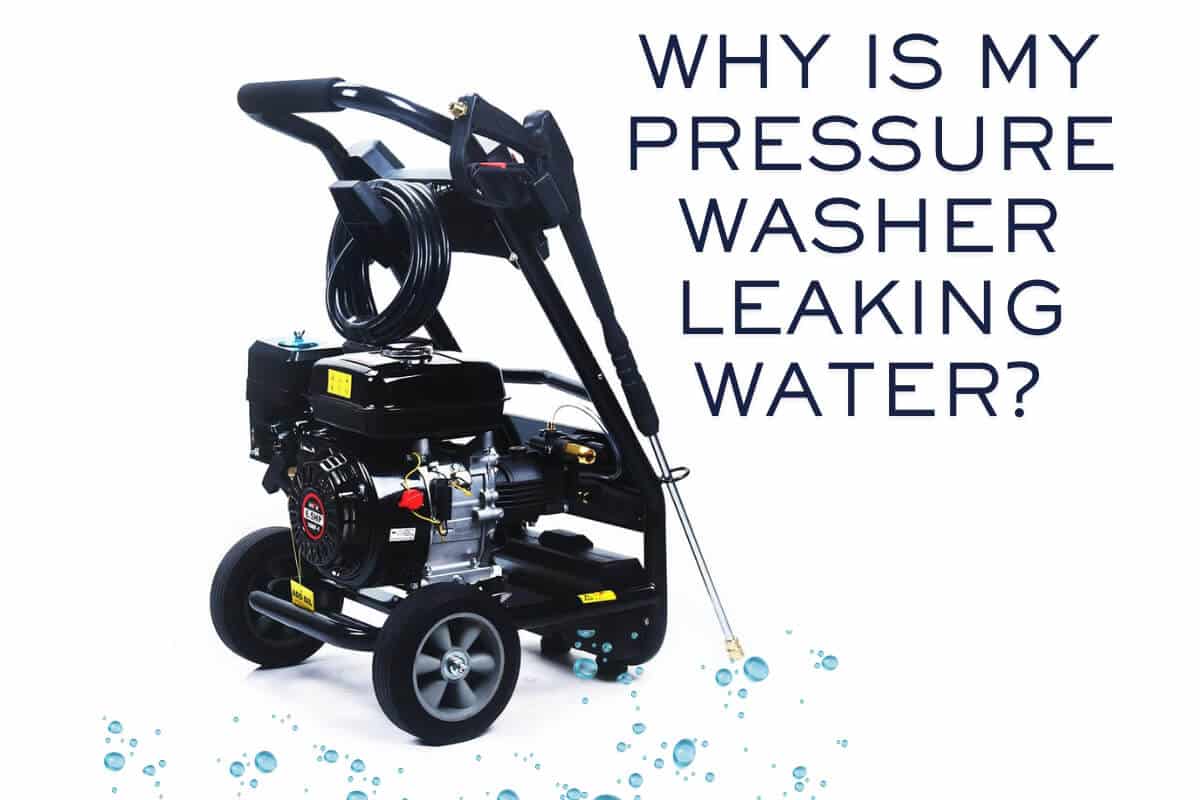
Understanding your pressure washer
Before diving into the causes of water leaks, it’s important to understand how a pressure washer works. They draw water from a standard source—like a garden hose—then use a motor or engine to drive a pump that increases the water pressure. This pressurized water is delivered through a hose and focused through a spray gun and nozzle to clean surfaces effectively.
Knowing how each component functions will help you pinpoint and resolve any issues more easily. Once you know where to look, troubleshooting becomes much easier—and often, so does the fix.A pressure washer’s primary parts are as follows:
- Motor/engine: This is the power source of the pressure washer. It drives the pump and can be electric or gas-powered, depending on the model.
- Pumpe: The heart of the machine, the pump draws in water from the supply and compresses it to create a high-pressure stream.
- Schlauch: The high-pressure hose connects the washer to the spray gun or wand.
- Spray nozzle: Attached to the end of the spray gun, the nozzle controls the spray pattern and pressure level.
- Gaskets and o-rings: These small rubber seals are located throughout the pressure washer at various connection points—such as between the hose, pump, and spray gun. Their role is to maintain watertight connections.
- Safety valves and filters: Pressure washers often include safety valves to prevent pressure overload and filters to block debris from entering the pump.
How leaks impact performance and longevity
A leaking pressure washer does more than just make a mess—it can seriously affect your machine’s performance, efficiency, and lifespan. Here’s how leaks can cause problems:
1. Reduced cleaning power
Leaks cause a drop in water pressure, making the washer less effective at tackling tough stains and debris. What would normally be a quick job may take longer, require multiple passes, or fail to deliver the desired results entirely.
2. Increased wear and tear
When a leak occurs, the pump often works harder to compensate for the pressure loss. This added strain can accelerate the wear on internal components like seals, valves, and pistons—shortening the overall lifespan of your pressure washer.
3. Higher water consumption and costs
Constant water leakage leads to unnecessary water usage. In areas where water is metered, this can result in noticeably higher utility bills, especially if the pressure washer is used frequently or for extended periods.
4. Potential safety hazards
Leaks near electrical components in electric pressure washers can create dangerous conditions, increasing the risk of short circuits or electric shock. Additionally, water pooling around the unit or hose connections can lead to slippery surfaces, raising the chance of slips and falls during operation.
Common reasons why pressure washers leak water
1. Loose or broken hose connections
If the hose, gun or accessories are not connected tightly, water may leak from the joints. Joints also wear or crack over time.
To fix this problem, check all fittings and tighten them properly by hand or with a tool. If a joint is damaged, simply replace it.
2. Worn-out o-rings and seals
Due to continuous use, water pressure, high temperature or chemicals, hose and gun O-rings can become brittle, cracked or flattened, causing leaks. If leaks occur around joints or connectors, check the O-rings and replace any cracked or flattened O-rings. When installing new O-rings, also remember to use a silicone-based lubricant to ensure a secure seal.
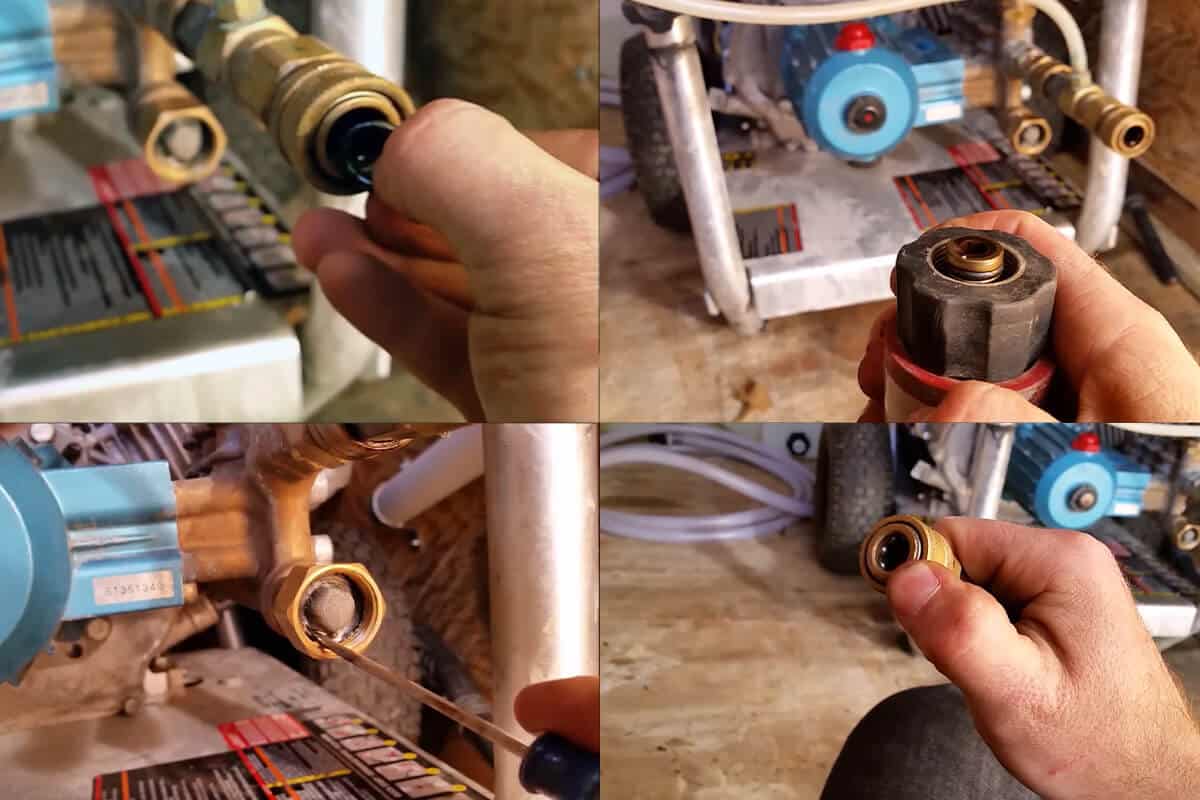
3. Cracked or damaged hose
Small cracks or holes in the hose can cause leaks, especially if it is frequently bent, twisted, or exposed to sunlight. If damage is found, replacing the pressure washer hose is the best solution
4. Faulty pressure washer pump
Water pumps can develop cracks from wear and tear or freezing temperatures. Any cracks or internal failures can cause the pump to leak and reduce pressure. If a water pump is damaged or corroded, it will need to be repaired by a technician or replaced entirely
5. Clogged or damaged unloader valve
The unloader valve redirects water flow when the trigger is released. A clog or fault can cause pressure buildup and leaks. If you find water leakage in the valve or nearby areas, or unstable water pressure, you should clean or replace the valve immediately.
6. Thermal relief valve leaks
This valve prevents overheating by releasing hot water. Occasional dripping is normal, but constant leaks signal a problem. If leaking is continuous, replace the thermal relief valve.
7. Worn or damaged nozzles
The nozzle controls spray flow. If it’s cracked, clogged, or worn, it may cause leaks or reduce effectiveness. If you find water leaking around the pressure washer nozzle, uneven water spraying, or reduced pressure, you should check the nozzle and clean or replace it.
8. Pressure washer frame damage
A misaligned or cracked frame can shift internal components, causing stress on joints and leading to unexpected leaks. This leak usually occurs in an unusual location, such as behind a panel or under a pump. This will require repair or replacement of the frame to restore alignment and support.
9. Using the wrong water temperature
A cold water pressure washer should not be used with hot water. Excess heat can damage seals, hoses, and internal parts.
How to prevent water leaks in pressure washers
While fixing a leaking pressure washer is important, preventing leaks in the first place is even better. With simple maintenance and regular care, you can keep your machine in excellent condition and avoid unexpected breakdowns. Here are some practical tips to help you prevent water leaks and extend the life of your pressure washer.
- Clean your pressure washer regularly.
- Apply lubricant during regular maintenance or when replacing seals and o-rings.
- Winterize your pressure washer.
- Inspect for wear and tear before use.
- Use detergents properly.
- Store your pressure washer correctly.
- Follow the manufacturer’s maintenance schedule.
- Perform regular maintenance on the pump, especially before and after the season.
- Operate the machine properly.
Schlussfolgerung
Water leaks in pressure washers can be frustrating—but the good news is they’re often easy to prevent and fix with a little attention and regular care. By keeping your machine clean, inspecting key parts like hoses, nozzles, and seals, and storing it properly, you can avoid common leak issues and extend the life of your equipment. Routine maintenance not only helps prevent breakdowns but also ensures consistent, high-pressure cleaning performance.
If you’re in need of a reliable pressure washer or durable replacement parts, look no further. As a trusted professional Hersteller von Hochdruckreinigern in China, we are dedicated to providing high-quality machines and components that stand the test of time. Choose our brand for dependable power, excellent build quality, and long-term value.
Das könnte Sie auch interessieren
Noch Fragen?
Kontaktieren Sie uns noch heute.
Mehr finden?
Verwandte Beiträge
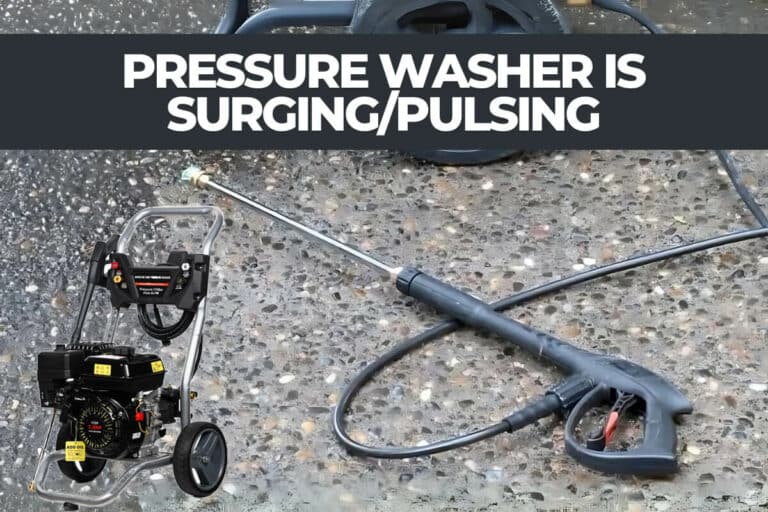
Hochdruckreiniger schwappt/pulsiert
Wir helfen Ihnen zu verstehen, warum Ihr Hochdruckreiniger anschwillt, und führen Sie durch einfache Schritte, um das Problem zu beheben, damit Sie sich wieder Ihren Aufgaben widmen können.
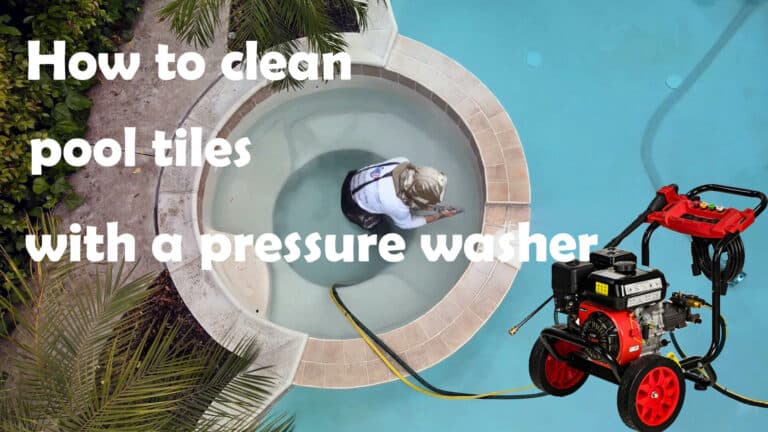
Reinigung von Poolfliesen mit einem Hochdruckreiniger
In diesem umfassenden Leitfaden erfahren Sie, wie Sie die Fliesen Ihres Schwimmbeckens mit einem Hochdruckreiniger wieder auf Vordermann bringen können.
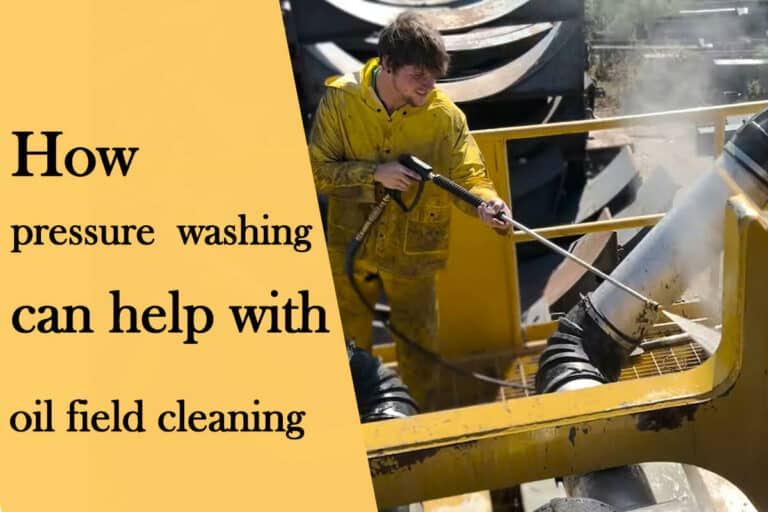
Wie die Druckreinigung bei der Reinigung von Ölfeldern helfen kann
In diesem Artikel wird aufgezeigt, wie das Hochdruckreinigen eine Reinigungslösung für die Ölfeldindustrie sein kann, und es werden die Vorteile und Anwendungsmöglichkeiten untersucht.
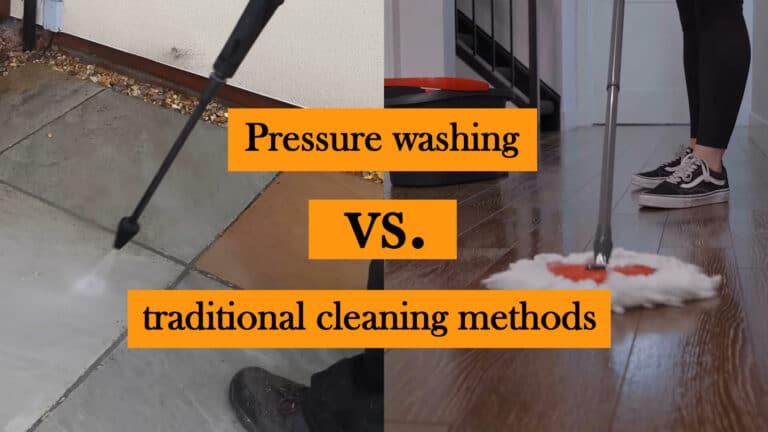
Hochdruckreinigung im Vergleich zu traditionellen Reinigungsmethoden
In diesem Artikel vergleicht BISON ausführlich die Vorteile und Nachteile von Hochdruckreinigungsverfahren und traditionellen Reinigungsmethoden.

